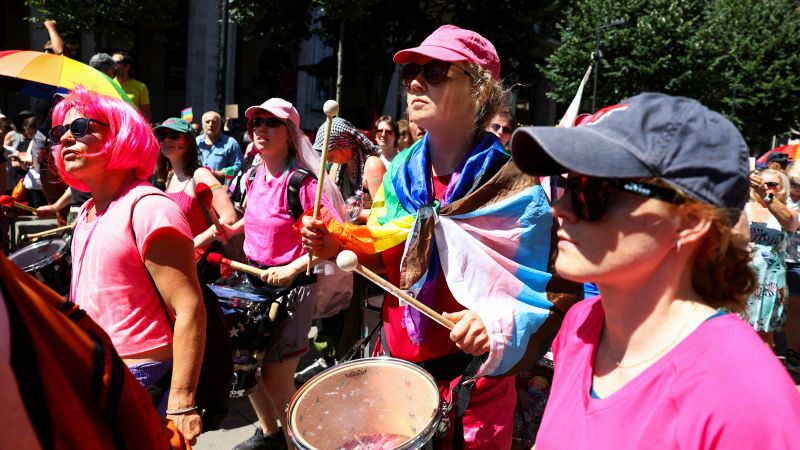Beneath a blaze of rainbow flags and amid roars ofdefiance,big crowds gathered in the Hungarian capital Budapest for the city’s 30th annual Pride march – an event that, this year, is unfolding as both a celebration and a protest.
Moving through the capital in the sweltering heat, demonstrators carried signs reading “Solidarity with Budapest Pride” and waved placards bearing crossed-out illustrations of Prime Minister Viktor Orbán.
Music played from portable speakers as people of all ages joined the march – families with pushchairs, teenagers draped in capes, and older residents walking alongside activists.
From the city’s historic centre to its riverside roads, the procession swelled in numbers and noise – visibly reclaiming public space in defiance of a law designed to push them out.
The march proceeded in open defiance of a police ban imposed earlier this year under sweeping new legislation that prohibits LGBTQ+ events nationwide.
At least 70 members of the European Parliament were expected to join the procession, officials told CNN in May.
Van Sparrentak, who is a Dutch MEP from the parliament’s “Greens/European Free Alliance” political group, told CNN that she will be attending Budapest Pride to “support the LGBTIQ+ community in Hungary, to let them know that they are not alone (and) to be visible as a community.”
“Pride is a protest, and if Orbán can ban Budapest Pride without consequences, every pride is one election away from being banned,” she continued.
In March, Hungarian lawmakers passed legislation barring Pride events and permitting the use of facial recognition technology to identify participants – measures campaigners say is illegal and part of a wider crackdown on the LGBTQ+ community.
Orban welcomed the ban, which he said would outlaw gatherings that “violate child protection laws.” His government has pushed a strongly Christian and conservative agenda.
The ban sparked lively protests in Budapest in March, with organizers of the city’s Pride vowing to continue with the annual festival despite the new law and declaring: “We will fight this new fascist ban.”
A petitiondemanding police reject the ban has gathered over 120,000 signatures from supporters in 73 countries, urging authorities to “reject this unjust law” – believed to be the first of its kind in the EU’s recent history – and ensure that the march proceeded “unhindered and peacefully, free from discrimination, harassment, fear or violence.”
CNN’s Catherine Nicholls and Billy Stockwell contributed to this report.
